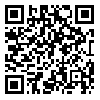BibTeX | RIS | EndNote | Medlars | ProCite | Reference Manager | RefWorks
Send citation to:
URL: http://jdisabilstud.org/article-1-1040-en.html

 1, Fatemeh Pourhoseini Lilakohi1
1, Fatemeh Pourhoseini Lilakohi1 
 , Sogra Mosadeg Firozabadi1
, Sogra Mosadeg Firozabadi1 
 , Maryam Mohseni Taromsari1
, Maryam Mohseni Taromsari1 

Background & Objective: Having social skills and good behavior play crucial role to have useful function in life. These skills make us to know what should we say, how to choose best choice and how to behave in different situation. At the same time comprehending ourselves and understanding others is essential to have effective social interactions. Therefore successful social relationship require to have special mechanism to understand others internal states and to process others` mental states. Theory of mind is a qualification to perceive the social environment and is essential to engage in competitive behavior and has been defined as an ability to understand what other think and feel and responding others` emotional signals appropriately. Recent studies mostly survey the effect of training of Theory of mind on improvement of adaptive behavior, communications and social skills of different group of exceptional students and sometimes observed contradictory consequence. Problem in reading or dyslexia is one of the specific learning disability (SLD) that is the most significant factor in failure at school. Incidence rate of this disorder among schoolchildren has been reported between 3 to 17.5 percent. More than 50 percent of people with SLD has behavioral, emotional and social problems. Therefore the goal of this study was to survey the effectiveness of training theory of mind on social skills and behavioral problems in SLD with impairment in reading or dyslexia students.
Methods: The research was experimental with pre–test, post–test experimental and control groups. The statistical population included primary dyslexic students in Rasht (2016–2017) (North of Iran) who had been referred to learning problems center. Among these students, thirty students were randomly selected as experimental and control groups. To evaluate children's intelligence, an IQ test was used which was validated through 0.95 for the total intelligence, 0.95 for verbal intelligence, and 0.91 for practical intelligence. To diagnose reading disorder, the Noma diagnostic reading test, which standardized by Koromi and Moradi, was used. The alpha coefficient of this test is 0.82. Gersham and Elliott (1990) has been used to assess social skills and behavioral problems. The reliability of this scale in the study was 0.86 for social skills, 0.76 for cooperation, 0.72 for determination and 0.86 for self–restraint. This scale was applied to both groups before and after training. Participants of the experimental group received theory of mind training during twelve sessions and each session was sixty minutes. Data were analyzed by analysis of variance and SPSS version 23 software.
Results: The mean and standard deviation of the experimental group before training for social skills were 47.00 ± 3.93 and for behavioral problems, 43.7 ± 5.21 respectively. These values after theory of mind training, for social skills are 68.2 ± 5.57, and for behavioral problems 31.5 ± 5.96. While these indicators did not change for the control group in both variables before and after education. Results analysis of variance of post–test scores on social skills scale showed a significant difference between groups (p<0.001).
Conclusion: Theory of mind training increases social skills and decreases behavioral problems in SLD with impairment in reading or dyslexia students.
| Rights and permissions | |
 |
This work is licensed under a Creative Commons Attribution-NonCommercial 4.0 International License. |


